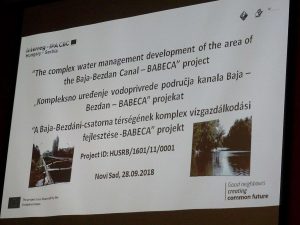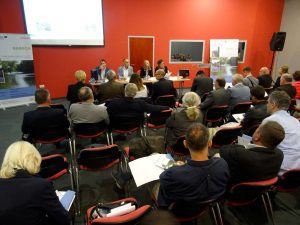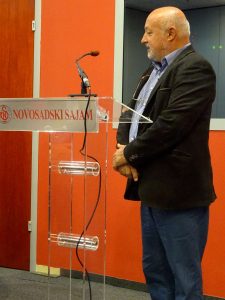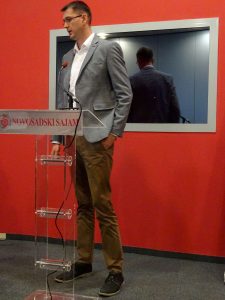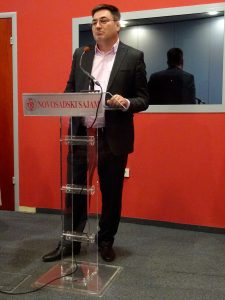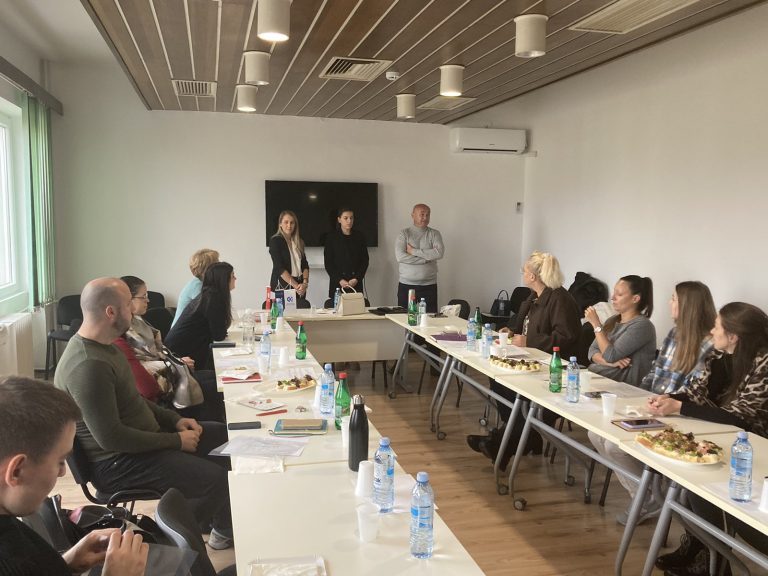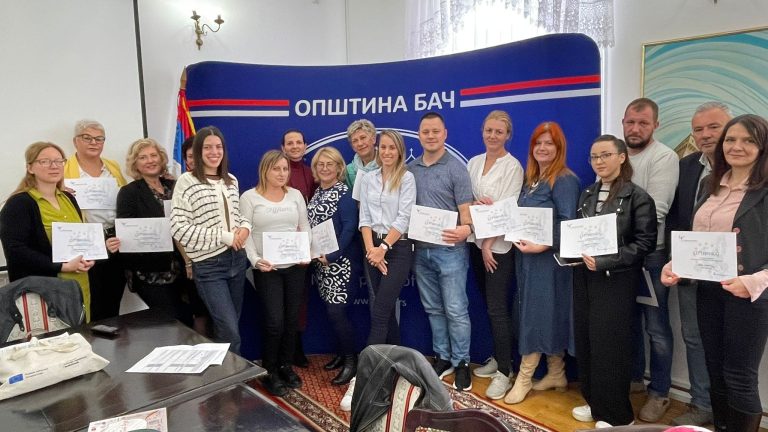Round table within the framework of the BABECA project
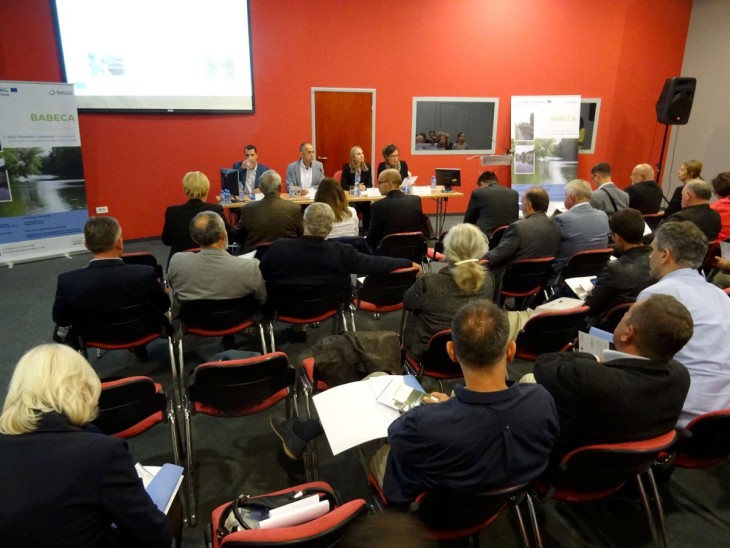
Within the framework of the project “Complex Water Management of Baja-Bezdan Channel (BABECA)”, co-financed by the European Union through the Interreg IPA Hungary-Serbia Cross-Border Cooperation Program, a roundtable on water management was held in Novi Sad on 28 September 2018.
The partnership in the project, with the overall amount of allocated funding exceeding EUR 8,699,537.91, of which the amount of the EU (IPA) contribution is EUR 7,394,607.21, consists of the Lower Danube Valley Water Directorate (Hungary), Public Water Management Company “Vode Vojvodine” Novi Sad (Serbia) and European Affairs Fund of Autonomous Province of Vojvodina (Serbia).
The goal of the round table was to present the main project activities that contribute to the improvement of the water flow in the Baja-Bezdan Canal, cross-border water management systems and flood risk prevention.
The meeting was opened by Ivana Đurica, Assistant Director, European Fund Affairs of AP Vojvodina, and the attendees were greeted by Milán Mandity, Deputy Technical Director, Lower Danube Valley Water Directorate, and Stevan Ilinčić, Assistant Director, PWMC “Vode Vojvodina” Novi Sad. The project was presented by Zsolt Királj, Project Manager, Lower Danube Valley Water Directorate, and Stevan Ilinčić, Project Coordinator, PWMC “Vode Vojvodina” Novi Sad. Examples of best practice in international co-operation in the field of water management were presented by Miroslav Dunjić, Assistant Provincial Secretary for Agriculture, Water Management and Forestry, Milić Bunčić, Secretary of the Serbia-Hungary Water Management Committee, PWMC “Vode Vojvodina” Novi Sad, and Božidar Beloš, Head of Department for Protection against External Waters, PWMC “Vode Vojvodina” Novi Sad.
In addition to partner institutions, the round table was attended by colleagues from the Provincial Government, provincial institutions, faculties, as well as the representatives of municipalities and other institutions in the field of water management.
The implementation of the project started on 29 September 2017 and is planned to last until 28 September 2020.
